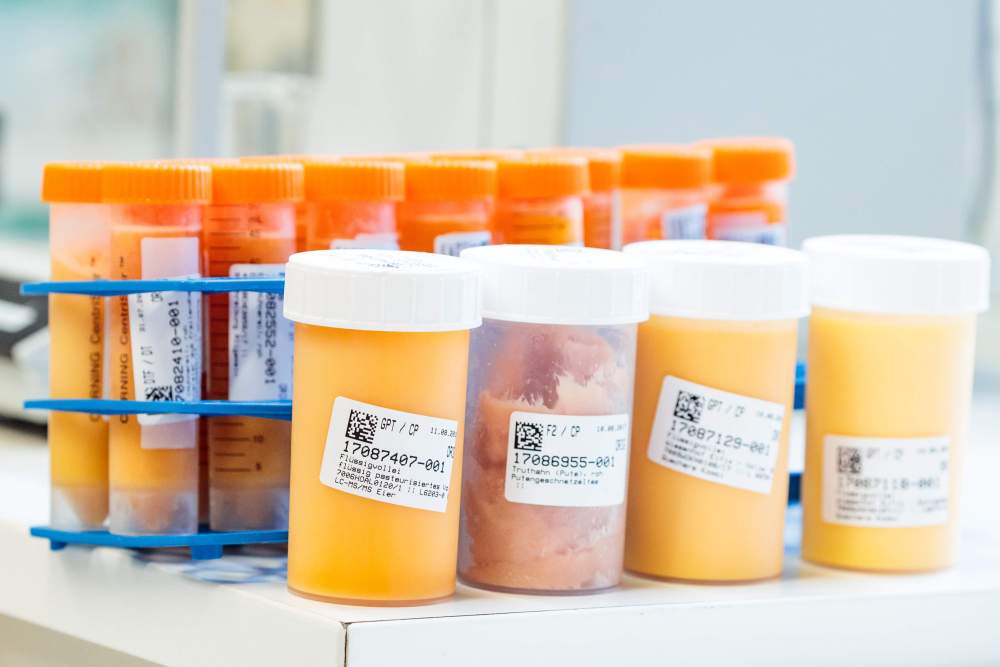
Investigators ordered to look into the fipronil scandal found contaminated eggs or chicken in eight different European Union countries, it has been revealed.
Millions of eggs were withdrawn from sale and laying hens were culled last year following the discovery that the banned pesticide fipronil had been used in the Netherlands and Belgium in a treatment for red mite, an ectoparasite of poultry.
The European Commission asked the European Food Safety Authority (EFSA) to investigate the extent of the problem and EFSA has now produced a report following completion of its inquiries.
EFSA was asked by the Commission to look for evidence of fipronil and other similar substance. It found residues above legal limits in eight different countries.
The positive samples were found in the Netherlands, Italy, Germany, Poland, Hungary, France, Slovenia, and Greece. "Exceedances were almost exclusively related to fipronil," said EFSA in its report.
100 farms
Last year's fipronil scandal led to more than 100 farms being shut down in the Netherlands, where the crisis emerged and eggs and products containing eggs being withdrawn from stores across Europe, including the UK.
However, although foods were taken off shelve in the UK, investigations found no evidence of fipronil on British farms.
Even so, the British Egg Industry Council (BEIC) said it was introducing an approved list of pesticides that could be used on farms. It urged retailers, processors and food service companies to play safe and buy UK eggs.
EFSA said in its report that the alarm was raised last year after Belgium informed the European Commission on July 20 that it had identified eggs contaminated with fipronil.
"Since then, in many European Union (EU) countries and also in certain third countries a similar contamination of eggs was identified," said the report.
It was decided to seek a "comprehensive view" on the contamination of eggs and poultry muscle or fat. Data was sought from each EU member state and from Iceland.
Legal limit
EFSA said that a total of 5,439 samples were submitted to it from the sampling period between September 1, 2017 and November 30, 2017.
Among these samples, 742 samples contained residues exceeding the legal limit. “MRL (maximum residue level) exceedances were almost exclusively related to fipronil and were associated with unprocessed chicken eggs (601 samples), fat of laying hens (134 samples), muscle of laying hens (5 samples) as well as dried egg powder (2 samples),” said the report.
"Samples that exceeded the legal limit originated from the Netherlands (664 samples), Italy (40 samples), Germany (13 samples), Poland (11 samples), Hungary (6 samples), France (5 samples), Slovenia (2 samples) and Greece (1 sample)," it said.
"Among the 66 substances that were recommended to be analysed in the framework of the ad-hoc monitoring programme, the only substances found in quantifiable concentrations were fipronil (915 determinations) and amitraz (2 determinations)."
Monitoring
EFSA has recommended that in future fipronil and other similar chemicals should be included in the monitoring activities of member states.
Eggs and products made with eggs were pulled from sale across many European countries at the height of the crisis. Some 700,000 potentially contaminated eggs from Europe were thought to have been imported into the United Kingdom for use as egg product.
Four supermarkets withdrew some foods from their shelves as a precaution. Sainsbury's confirmed that all salads containing eggs were being removed from sale because there was a risk that eggs may contain small traces of fipronil.
Asda, Morrisons and Waitrose have also withdrawn some products from their shelves. Tesco said it was not affected.
Egg packers were subsequently asked by retailers to confirm in writing that no products containing fipronil had been used on their farms. Packers, in turn, sought the same assurance from the producers who supplied them.
Source British
The Food Standards Agency (FSA) said early in the crisis that there was nothing to suggest that the chemical has been used on UK farms. Testing was carried out on British farms and no traces of the banned substance were found.
In the wake of the fipronil scandal, Ian Jones, chairman of British Lion Egg Processors, called on buyers to source British eggs.
He said: “This is just the latest of a number of food safety issues connected to eggs produced outside of the UK in recent years.
“Consumers clearly want retailers, caterers and food manufacturers to use good quality British ingredients that are produced to high standards of food safety, but in some prepared foods this is not the case.”
Double standards
Whilst major supermarkets promote the fact that they source their shell eggs from British producers, he said, the withdrawals following the fipronil scandal show that many eggs for processing are sourced from overseas. Ian Jones accused the retailers of operating double standards.
“The major retailers are operating to double standards when it comes to eggs. All of them stock British Lion shell eggs but they use imported eggs in many of their other foods containing eggs.”
He said: “As we approach Brexit, shoppers are growing increasingly concerned about the ingredients used in manufactured food and now more than ever want and deserve transparency on food packaging.
“The egg industry believes that this is a great opportunity for retailers to listen to the concerns of their customers and reassure them by specifying the use of British eggs and using the ‘Made with British Lion eggs’ logo on packs.”
Robert Gooch, chief executive of the British Free Range Egg Producers' Association, also called for both retailers and manufacturers to buy British eggs produced under quality codes like Lion and Laid in Britain.
